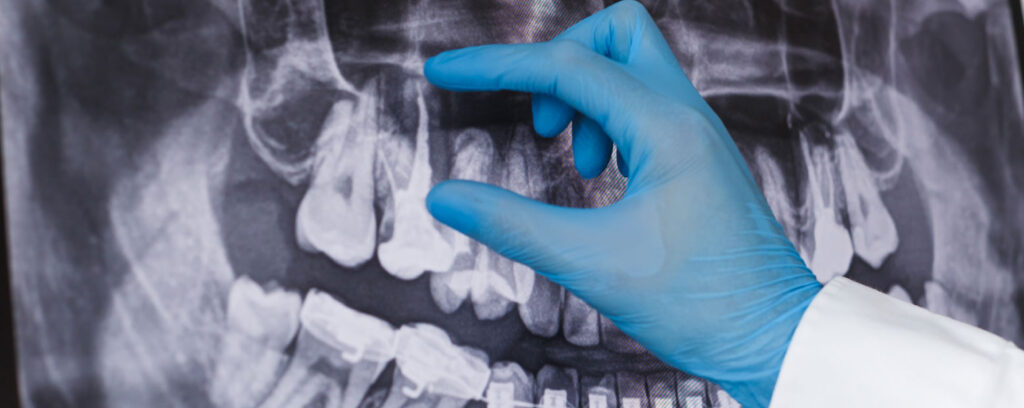Root canals are often associated with severe tooth pain, but not everyone knows the specific signs that indicate the need for this treatment. Understanding the symptoms can help you seek timely care, potentially saving your tooth and relieving discomfort. In this article, we’ll explore the common signs that you may need a root canal and what to expect from the procedure.
Persistent Tooth Pain
Why It Happens: Persistent pain is one of the most common indicators that you might need a root canal. This pain can be constant or intermittent and often intensifies when you eat or put pressure on the affected tooth.
What It Means: The pain usually indicates that the tooth’s pulp, which contains nerves and blood vessels, is inflamed or infected. If left untreated, the infection can spread, leading to more severe complications.
Sensitivity to Hot and Cold
Why It Happens: If you experience sharp pain when consuming hot or cold foods and beverages, it could be a sign that the nerves in your tooth are damaged or infected.
What It Means: This heightened sensitivity, especially if it lingers after the hot or cold substance is removed, suggests that the tooth’s pulp is compromised and may require a root canal to prevent further damage.
Swollen or Tender Gums
Why It Happens: Swelling or tenderness in the gums around a specific tooth can indicate an infection that has spread from the tooth’s pulp to the surrounding tissues.
What It Means: Gum swelling often accompanies abscess formation, which is a pocket of pus caused by the bacterial infection. This is a clear sign that root canal treatment is needed to remove the infection and prevent it from spreading.
Darkening of the Tooth
Why It Happens: Discoloration of a tooth can occur when the tooth’s pulp dies. This can happen due to trauma, decay, or previous dental procedures.
What It Means: A darkened tooth may indicate internal damage, and a root canal can help preserve the tooth by removing the dead or dying pulp and preventing further infection.
Cracked or Chipped Tooth
Why It Happens: If a tooth is cracked or chipped due to injury or biting down on something hard, bacteria can easily enter the pulp chamber, leading to infection.
What It Means: Even if the crack or chip doesn’t cause immediate pain, it can expose the tooth’s nerves to bacteria, eventually necessitating a root canal to prevent infection.
Prolonged Sensitivity or Pain After Dental Work
Why It Happens: Sometimes, teeth can become sensitive or painful after dental procedures like fillings or crowns. If this pain persists, it might indicate that the tooth’s pulp has been affected.
What It Means: Prolonged sensitivity or pain after dental work can be a sign of an underlying issue that requires a root canal to resolve and protect the tooth from further damage.
Bump on the Gums
Why It Happens: A small, pimple-like bump on the gums near the affected tooth is known as a fistula. This bump is a channel for the pus from an abscess to drain.
What It Means: The presence of a fistula indicates a severe infection in the tooth’s pulp, necessitating a root canal to remove the infection and heal the tooth.
What to Expect from a Root Canal
If you experience any of these signs, it’s crucial to consult with your dentist as soon as possible. Here’s a brief overview of what to expect during a root canal procedure:
- Initial Consultation: Your dentist will examine your tooth and take X-rays to assess the extent of the infection or damage.
- Anesthesia: To ensure your comfort, local anesthesia will be administered to numb the affected area.
- Removing the Infected Pulp: The dentist will create an opening in the tooth and remove the infected or damaged pulp.
- Cleaning and Shaping: The inside of the tooth will be thoroughly cleaned and shaped to prepare it for filling.
- Filling the Tooth: The cleaned space will be filled with a biocompatible material and sealed.
- Restoration: Depending on the extent of the damage, a crown may be placed on the tooth to restore its function and appearance.
Recognizing the signs that you may need a root canal can help you seek timely treatment and avoid further complications. Persistent pain, sensitivity, swelling, and other symptoms should not be ignored. If you suspect you might need a root canal, contact us for a consultation. Our experienced dental professionals are here to provide you with the care you need to maintain your oral health and keep your smile bright.







